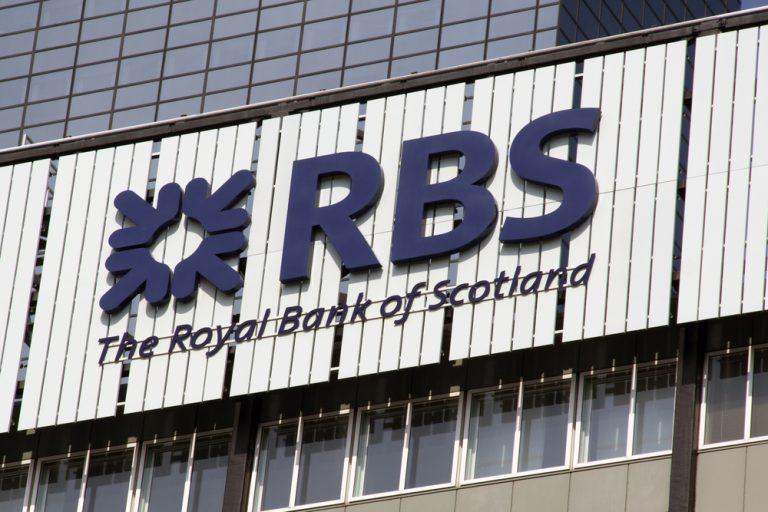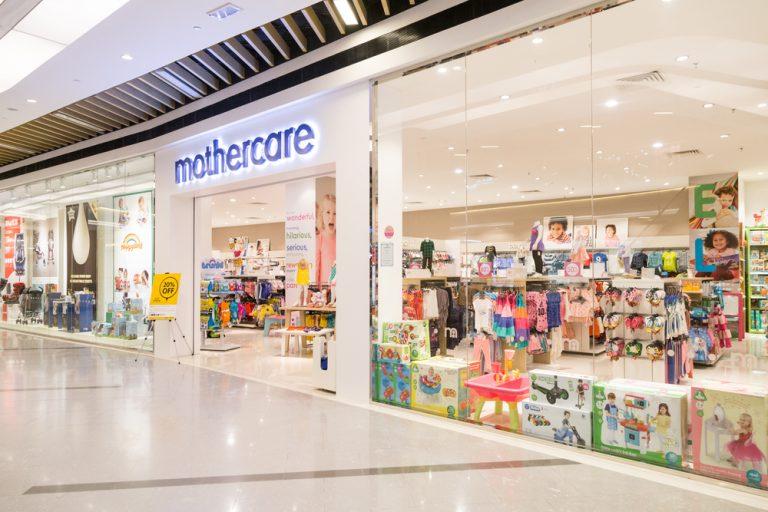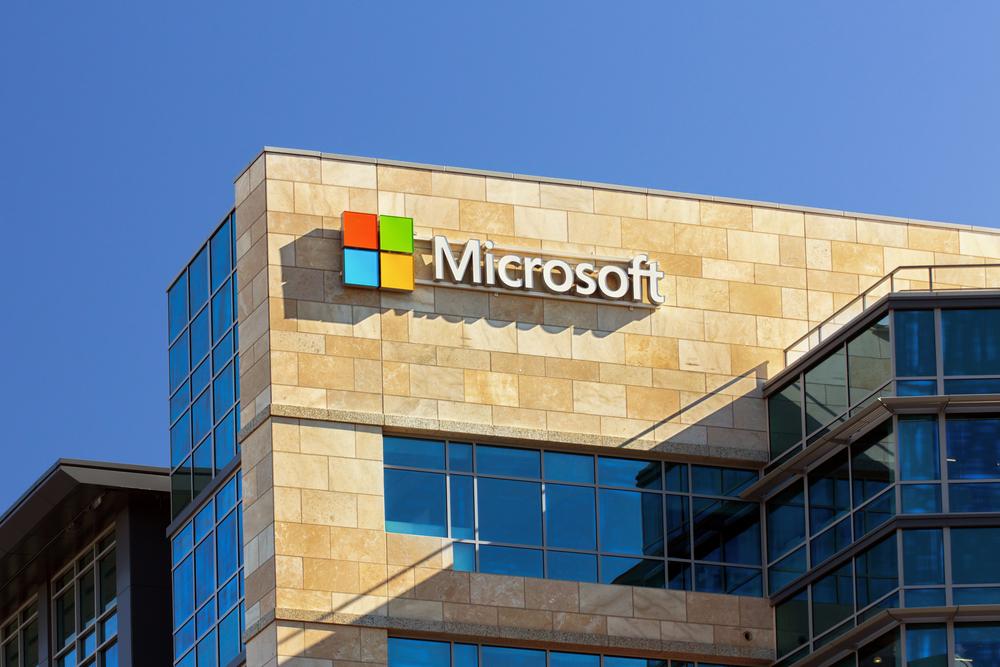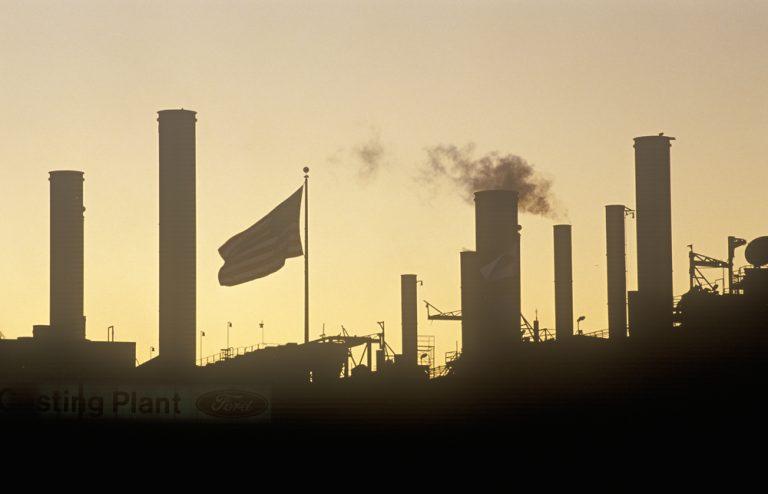Government makes £2bn loss on RBS sale, shares fall
The government has made a £2.1 billion loss on its sale of Royal Bank of Scotland (LON: RBS) shares.
The shares were sold at almost half of the price paid in the government’s bailout of the bank ten years ago during the financial crisis.
“There is no economic justification for this sell-off of RBS shares,” said the shadow chancellor John McDonnell.
“There should be no sales of shares, full-stop. But because of this government’s obsession with privatisation, the taxpayers who bailed out the bank will now incur an enormous loss.”
“Taxpayers are paying the price for the Tories’ mismanagement of RBS over the past eight years,” he added.
After the sale, taxpayers will have a 62.4 percent stake in the bank, which was 70.1 percent before the sale.
Shares were initially bought for 502p each and sold at 271p each.
“The RBS share price has bounced back from its slump after the EU referendum, but the taxpayer’s still going to be significantly out of pocket as the government sells down its stake,” said Laith Khalaf, senior analyst at Hargreaves Lansdown.
“Few argue the RBS bailout was necessary to maintain financial stability, but the cost of that intervention is now starting to emerge.”
According to Khalaf, the share sale is “good news for private investors in RBS because it is a step towards becoming a normal bank again, though government sales may put downward pressure on the share price in the near term”.
Shares in the lender fell four percent in early trading.
The group saw a positive start to 2018, reporting their first profit in ten years.
Retail spending up 4.1pc in May
New reports from the British Retail Consortium and KPMG have shown growth in high street spending throughout May.
The warmer weather and the royal wedding led to a strong month for retailers with the total sales up by 4.1 percent.
While spending was up, the BRC chief executive Helen Dickinson warned of the tough climate. Almost 6,000 shops closed in 2017 while many more are planning closures this year.
“Retail sales in May saw their highest growth since January 2014 as better weather and the bank holiday effect led shoppers to buy from garden furniture and summer fashion ranges; recovering some of the ground lost in April,” said Dickinson.
“Food sales also stood out, with the best single month’s performance since July 2013.”
“Despite this more positive set of sales results, the retail environment remains extremely challenging, with trend growth still very low by historical standards.”
The warmer weather saw consumers buy in-store rather than online.
“Two bank holiday weekends, a royal wedding and of course sunnier spells will have been the main drivers behind the apparent rebound, with both online and high street sales thankfully up overall,” said Paul Martin, KPMG’s UK head of retail.
Spending was down 1.2 percent in the previous three months and was affected by “beast from the east”.
Spending is expected to remain strong over the summer months.
Mothercare rescue plan disrupted, risking further 300 jobs
Mothercare’s (LON: MTC) restructuring plan was rejected by creditors, leaving a further 300 jobs at risk.
The struggling group said on Monday that reduction proposals for 21 stores had been turned down by landlords and creditors.
Shares in the group were down over four percent on Monday afternoon following the news.
The retailer said on Friday that it had won the backing of creditors and landlords to commence with the CVA, however, plans for Children’s World were rejected by 73.3 percent of those who voted – 75 percent of the vote was required.
“KPMG have confirmed the votes relating to Mothercare UK and Early Learning Centre CVAs passed by a clear majority, however it is now clear that the CVA of Children’s World was not carried by creditors by a narrow margin,” said Clive Whiley, Mothercare’s executive chair.
“This will neither unsettle the UK restructuring and refinancing nor jeopardise our future transformation plans, which are already under way. As a board, we are now considering our next steps with respect to Children’s World.”
News of the closures came a few days following permission for the group to close 50 underperforming stores, risking 800 jobs.
Clive Whiley, the interim executive chairman, said the deal was a “crucial step forward to achieve the renewed and stable financial structure for the business that will drive an acceleration of Mothercare’s transformation”.
The group has been in turmoil following £72.8 million loss in its most recent financial year.
CVAs are becoming increasingly common on the high street as retailers are struggling to make a profit.
In 2018, Maplins and Toys R Us both fell into administration. Retailers Carpetright and New Look have entered into CVAs and announced store closures.
Microsoft to acquire GitHub, say reports
Business Insider has reported on talks between Microsoft and the code-sharing site GitHub.
According to reports Microsoft is hoping to acquire the code-sharing website, which would cement Microsoft’s role as a company built around tools for developers.
It is unclear whether the talks between the companies are still ongoing, however, confirmation could be revealed as soon as Monday.
GitHub was last valued in 2015 and was worth $2 billion. The cost of an acquisition could be over $5 billion, based on a price that was floated in 2017.
An analyst of Stratechery, Ben Thompson, wrote: “The enterprise offering will fold nicely into Microsoft’s other businesses but … the real win for Microsoft is not incremental peanuts in enterprise revenue but winning hearts and minds with developers broadly.”
“In other words, not only should sceptics not be worried about Microsoft unduly favouring their own platforms, they should also be excited that, more than any other potential acquirer, Microsoft is likely to push the individual and community aspects that make GitHub so unique,” he added.
GitHub has been without a CEO for the past year after CEO and founder Chris Wanstrath, stepped down 10 months ago. The group has faced a net loss of tens of millions as revenues have been outpaced by the company’s expenditure.
Over 24 million developers worldwide use the platform to host codes and work together on programming tasks. The paid features reportedly bring in $200 million in annual revenue.
According to the group’s user report, 52 percent of Fortune 50 corporations are GitHub Enterprise customers.
According to reports, this is not the first time that Microsoft has approached GitHub and the groups were in talks in 2016. GitHub has denied those reports.
European stocks up as investor confidence returns
Europe’s markets opened up on Monday, with Spain’s Ibex leading the way after the country swore in a new Prime Minister over the weekend.
After a disappointing week last week, hit by political uncertainty in both Spain and Italy, European shares recovered on Monday morning.
The FTSE 100 gained 37 points in early trading to hit 7740, currently up 0.73 percent to 7,758.24 (0910GMT).
Europe’s Stoxx 600 index is up 0.5 percent, with shares in France’s Societe Generale and Italy’s Unicredit holding up European markets as they consider a merger.
Strong US employment data also caused Asian shares to rally overnight, with Japan’s Nikkei gaining having its best day in almost six weeks and gaining around 1.4 percent.
Sirius Real Estate share are 3pc on strong rental incomes
Sirius Real Estate (LON:SRE) reported a 17 percent rise in annual profit on Monday, after increasing both its rental income and property portfolio.
Pre-tax profit increased to €89.6 million, up by €76.4 million on the year previously, total annualised rental incomes up 12 percent. Like-for-like annualised rental income rose by 6.3 percent, with the company reporting a dividend increase of 4.6 percent to 1.60c.
“We are delighted to have delivered a 17 percent total shareholder return based on adjusted NAV and dividends paid in the year,” said Chief Executive Officer Andrew Coombs.
“Equally, a record 6.2 percent increase in like for like annualised rental growth, the highest performance in the group’s history, in a period when our key focus was on recycling and reinvesting is an exceptional performance and reflects well on the strength of our in-house sales and marketing platform.”
The company, which is listed in both London and South Africa, focuses most of its attention on Germany.
“We still have the financial capacity to acquire over EUR100 million of assets for which we have a healthy pipeline of opportunities located in our target areas around Germany’s big seven cities where we have extensive market knowledge and expertise”, Coombs added.
Shares in Sirius Real Estate (LON:SRE) are currently up 3.34 percent at 68.00 (0859GMT).
DS Smith announce plan to buy Spanish Europac
DS Smith (LON:SMDS) became one of the biggest gainers on the FTSE 100 on Monday, after announcing a deal with Spanish packaging group Europac.
The deal will be worth around 1.9 billion euros, comprising of an offer price of 16.80 euros per share as well as taking on Europac’s debt. DS Smith are hoping to strengthen their business in Europe and take advantage of Europac’s supply chain.
“Europac’s Board of Directors has confirmed that the acquisition is friendly and attractive,” DS Smith said in a statement, adding that it expected annual pre-tax cost savings of 50 million euros, and further integration benefits.
The deal is still subject to approval, but sent DS Smith shares up over 3 percent in early trading. Shares are currently up 3.27 percent at 580.80 (0947GMT).
Big Sofa narrows losses by 8pc
Video content management group Big Sofa (LON:BST) reported narrowing losses in the year to December, dropping by 8 percent to £4.3 million.
Revenues also increased during the period by 72 percent, hitting £1.3 million, with gross margins up 65 percent from 30 percent in the previous period.
“We started 2017 with just a single MSA in place with Unilever and by the end of the year we had secured a place on the global rosters of multinationals such as P&G, McDonald’s, 84.51° and Target, in addition to signing a global MSA with Ipsos,” Simon Lidington, Chief Executive Officer of Big Sofa.
Big Sofa received a £3 million investment from Ipsos just over two months ago, who one of their biggest clients and a strategic sales partner. The investment was made at a premium with Ipsos paying around 18.3p per share.
“The strategic steps we have taken in 2017 and more recently in 2018 to forge relationships with large global organisations, successfully securing a £3 million investment from Ipsos and investing further in our technology platform, leave us well-placed to capitalise on the industry’s growing adoption of video research techniques.”
Shares in Big Sofa Technologies have stayed steady in the wake of the news, up 0.48 percent at 13.83 (0926GMT).
Dignity shares fall 11pc following announcement of CMA investigation
News of the Competition and Markets Authority’s plans to investigate the funeral market sent shares in one of the UK’s biggest funeral providers Dignity (LON: DTY) tumbling almost 11 percent.
The competition regulator will review the £2 billion a year market to investigate issues including the rate at which prices have soared in recent years.
James Daley, managing director at consumer group Fairer Finance, said: “Profit margins in the ‘at-need’ funeral market have been inflated for years.”
“Customers who buy funerals are grieving and have no idea what a fair price for a funeral is. And sadly they have proved far too easy to take advantage of. This market needs tighter regulation and better protections for consumers.”
“Everyone will need a funeral eventually, and it’s important that we can be confident we are paying a fair price for a good quality service.”
UK funeral provider Dignity issued a profit warning in January and has seen shares slide 50 percent over the past year.
Retail analyst Nick Bubb said: “The Dignity share price has recovered a fair way of late, after the bashing it took at the beginning of the year on the back of the price war, so it will be dismayed to hear this morning that the wretched CMA has the time (despite having to look at the Sainsbury’s/Asda merger) to launch a review into the £2 billion funerals market ‘to ensure that people are not getting a bad deal’.”
“An interim report, presenting initial findings and views on potential remedies, will be published in six months, ahead of the final report in a year’s time,” he added.
The FTSE 350 company cut its cheapest funeral package by 25 percent in 2016 following Co-op’s rival funeral service.
The Treasury will also be launching an investigation into the pre-paid funeral sector.
“People can understandably be very emotionally vulnerable when planning a funeral,” said Daniel Gordon, the senior director of markets at the CMA.
“We therefore think it is important that, at what can be a particularly challenging time, the process is made as easy as possible.”
US economy creates 223,000 jobs in May
The US economy created 223,000 new jobs in May, despite Donald Trump’s concerns for steel and car manufacturing workers.
According to the country’s latest employment report, the unemployment rate fell 3.8 percent compared to the month previously and is at an 18 year low.
“The job numbers are very strong, widespread, or broad-based, that was an indication of strength from the report,” said Michael Arone of State Street Global Advisors.
“The really good news for markets is the average hourly earnings continues to be very steady and does not signal a buildup in inflationary pressures, so overall a very solid report.”
Wall Street analysts predicted the creation of 188,000 jobs in non-farm payroll.
Job gains were seen across all job sectors in the US. 25,000 were created in construction and 18,000 jobs were gained in manufacturing.
As well as the lower unemployment rate, the average hourly pay of private-sector workers increased by 2.7 percent in May, compared with 2.6 percent the month previously.
On Friday, the US government imposed tariffs on steel and aluminium imports from the European Union, Mexico and Canada due to “national security” threats they placed on the US industry.
Paul Ashworth of Capital Economics said: “Trade wars could be damaging but, in a relatively closed economy where exports account for only 12 per cent of GDP, things would have to get a lot worse for the White House’s protectionist sideshow to alter the interest rate outlook.”
Trump hinted at the positive news before the data was released, tweeting: “Looking forward to seeing the employment numbers at 8:30 this morning.”
It is the lowest unemployment rate seen in the US since 2000.
Michael Gapen, the chief United States economist at Barclays, has predicted rates to fall to as low as thee percent by the end of 2019 – the lowest rate since the economic boom post World War Two.










